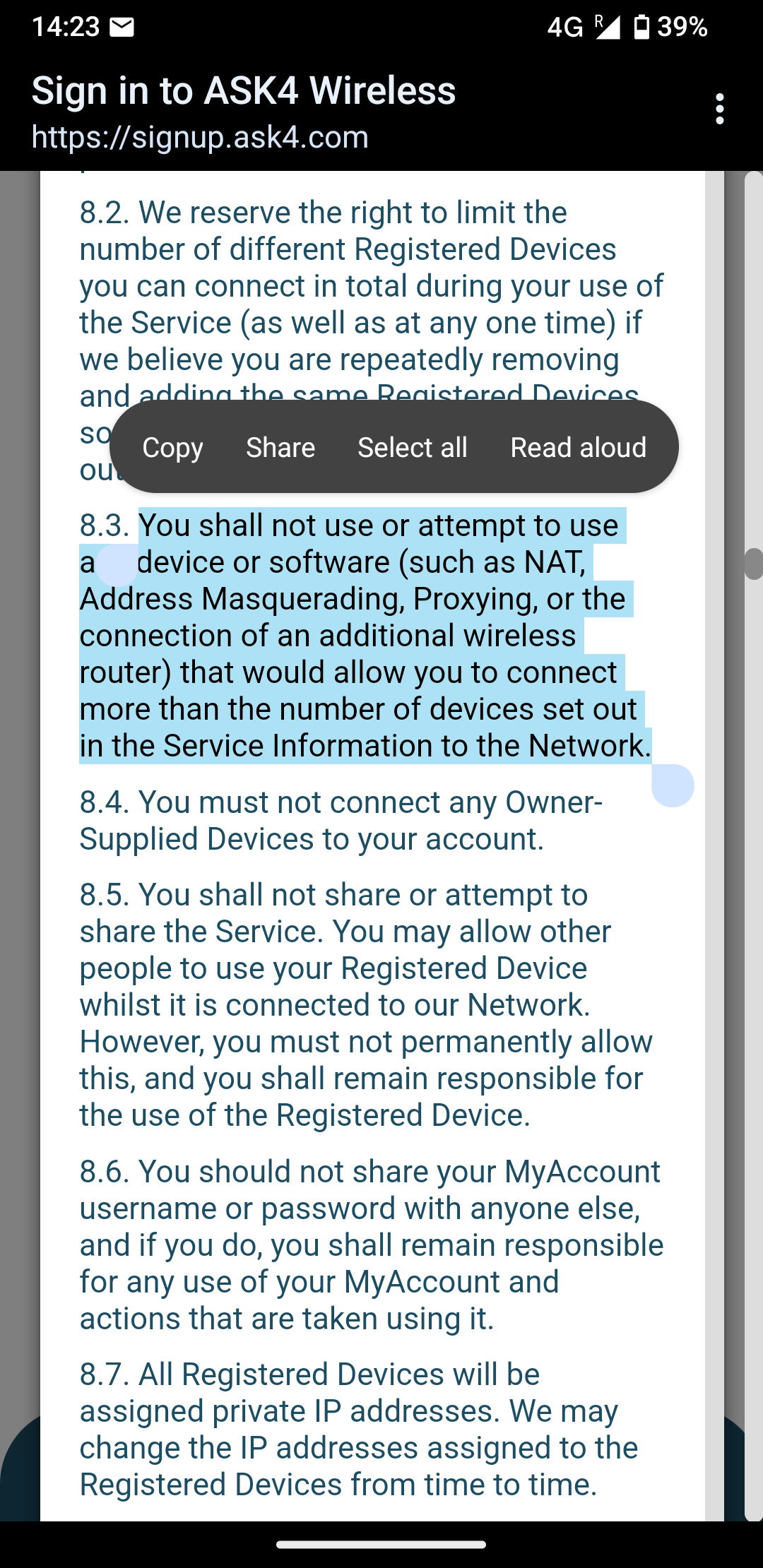Thank you so much, this is very helpful information! What kind of features am I missing out on using it locally? Setting and measuring the temperature sounds to me like a pretty feature-complete thermostat. :) To clarify, I don't actually need any Apple hardware/software to use this, Home Assistant just pretends to be HomeKit connecting to the Tado USB bridge and provides free control from its interface?
mat
The navigation app Öffi, which shows public transport times and journeys, has a whole map feature where it renders the journey if you turn your phone to landscape! I'd been using it for months when I found out by accident, made it even more useful.
I often have performance issues with Jitsi ("video has been turned off to save bandwidth"). Might this be down to which instance I use? Perhaps it's time to self-host.
Thank you so much for the kind words! It's indeed a bad time to be an app delevoper. At least the framework I use is portable-ish, so the work won't be fully lost.
I'm going to look into adding this to my app https://git.allpurposem.at/mat/Sudoku Indeed I do not agree with this, so it will become unavailable when the terms go into effect. I will look into making it available for Linux Mobile.
Is there a downvote button on Lemmy? My app only shows upvote.
It seems I didn't communicate my reason for having Instagram well enough. I don't have access to the "feed" or following people (it won't load unless I accept some terms, which I won't). I have an account with the messaging function bridged to my Matrix account, which lets me receive messages and (when it works) reply to them to organize moving to a better platform.
It's the best solution I found if I want to keep contact with people I meet when going out or traveling. Phone numbers barely work (I still can't call or message any German numbers, never found out why), and everyone I meet has Instagram. I just give them my username, they can add me easily, and then later over Instagram direct messages we figure out how to get them signed up for Matrix or Signal.
I'm personally trapped on Discord and Instagram.
Discord is required by my workplace, so no way of getting rid of it until everyone decides to move to something better. I have some friends on it too, but most of them also made Matrix accounts when I explained I won't be very reachable on Discord (I only open it when necessary; and it doesn'r run on my phone since they rewrote the app in JS). I have Instagram as a way to people I meet during travel or events to "add me" easily, and then we can figure out a good way to communicate afterward. I'm not too bothered by having it as I don't use it daily or anything.
I work at a game studio that provides Linux-native builds of our game. I don't speak for them but in my opinion this gives us an opportunity to take advantage of Linux features such as better input systems, performance, dev tooling, and in the future maybe APIs like Wayland. While the Windows build does work via Proton, it's limited to what Microsoft allows us to do with the Windows API. We also have to use a non-standard-compliant compiler (msvc) and overall maintaining a Windows build damages code quality, performance, dev speed, and end user experience. Our Linux userbase is already small enough, imagine if all our players started using the Proton version. It'd become impossible to justify spending as much time on the Linux builds as we do, and they would probably stop being available. So, although I see WINE and Proton as a net positive, I fear it will slowly kill Linux development and eventually all games will be limited 100% by what MS decides, despite technically playing them on a free platform.
Yes, but OP makes it sound like the Hollow Knight issue is not fixed either. I didn't even know HK had rumble, but I def felt the Silksong haptics when I played it at Gamescom. I wonder how we can make Team Cherry aware of this, or whether they are already aware?
Thanks for the info. That's a shame, I really want to use native builds when available. Especially since Silksong runs so well. Is there any hope for a fix, even if unofficial?

Thanks for the warning, that sucks. I'm only interested in the local functionality, so this should not affect me I think!